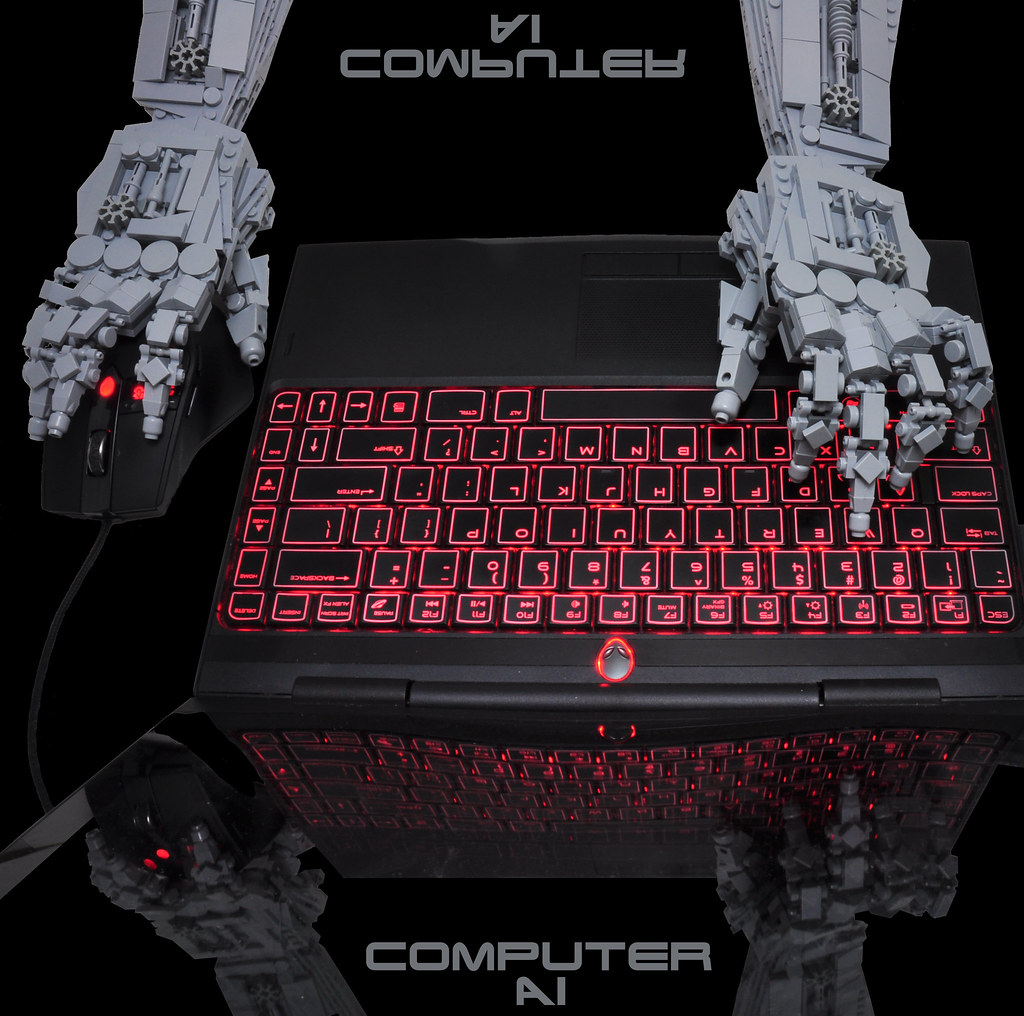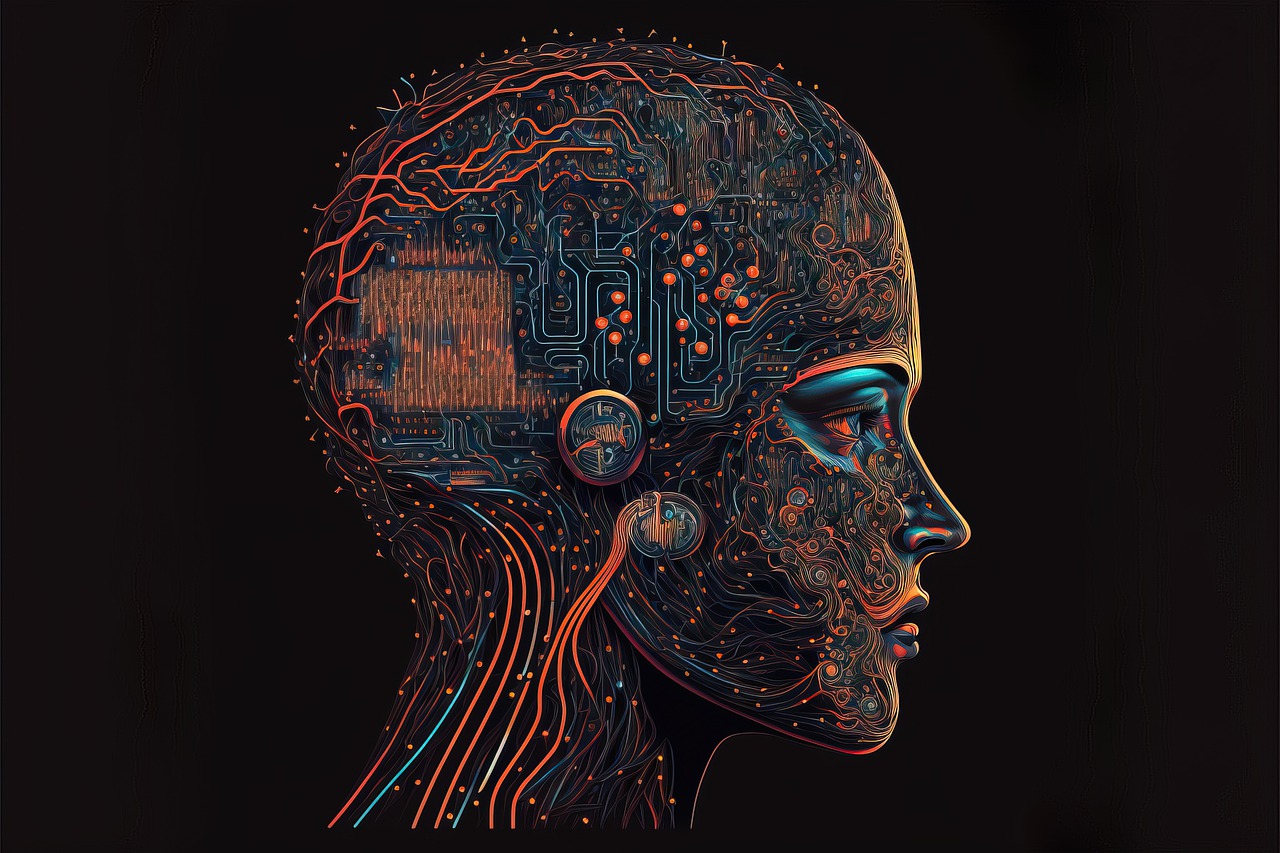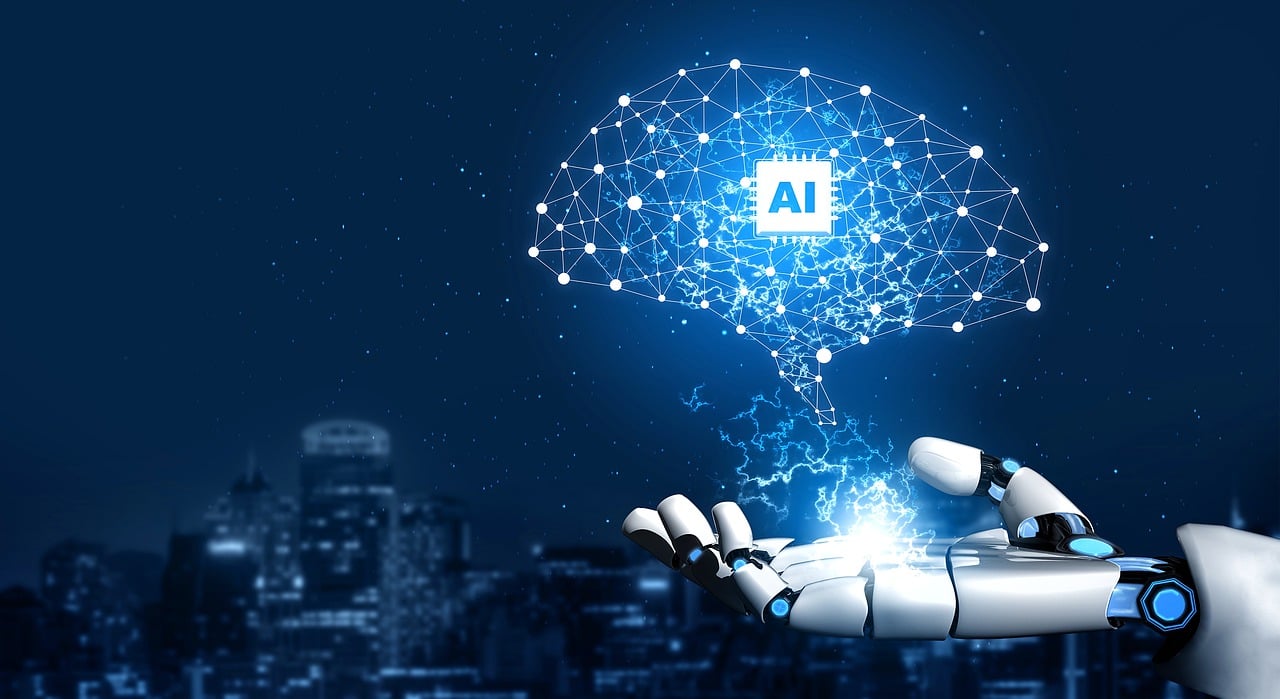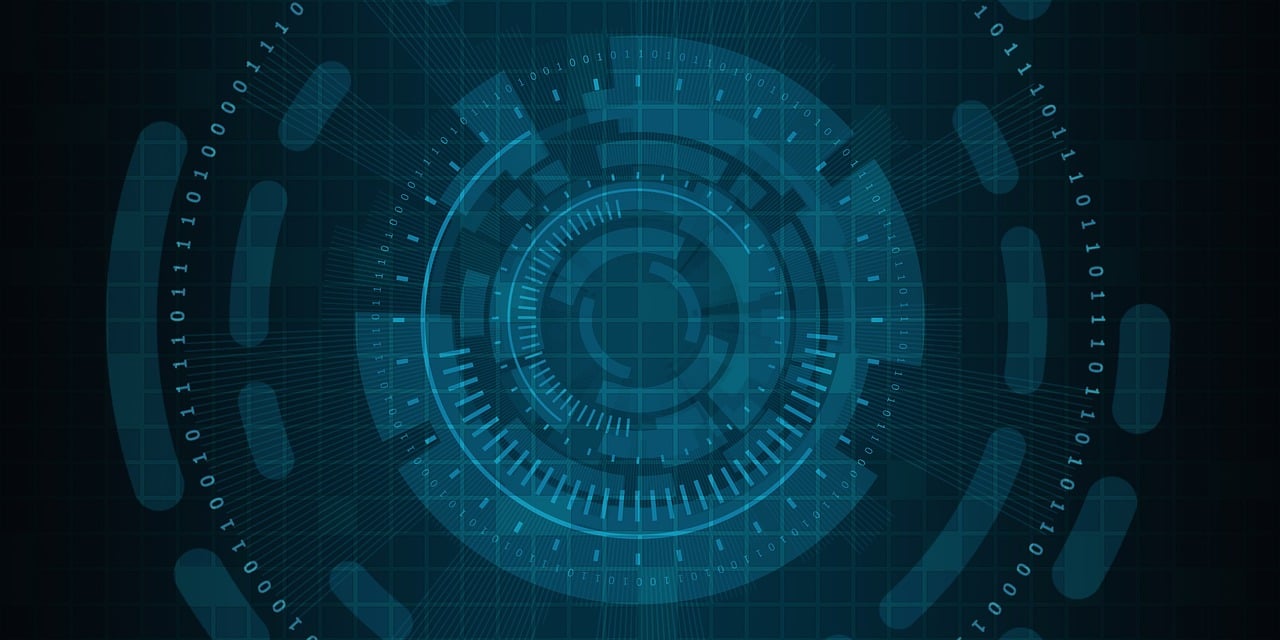The integration of artificial intelligence (AI) into the modern workplace is a dynamic process with far-reaching implications. One significant aspect is the automation of routine tasks, which has the potential to boost efficiency and allow employees to focus on more complex and creative aspects of their work. However, this shift toward automation raises concerns about job displacement, particularly for roles centered around repetitive tasks. As AI takes over mundane responsibilities, it becomes crucial for employees to adapt and acquire new skills to remain relevant in the workforce. Organizations will need to invest in retraining and reskilling programs to empower their workforce for the evolving job landscape. This adaptation can lead to a more dynamic and skilled workforce, ready to embrace the challenges and opportunities presented by AI.
Another key dimension of AI in the workplace is its impact on decision-making processes. AI tools and applications can provide valuable data-driven insights and predictions, facilitating more informed decision-making. However, it’s essential to strike a balance between AI-driven recommendations and human judgment. While AI can analyze vast amounts of data efficiently, human intelligence contributes the elements of intuition, emotional intelligence, and contextual understanding. The collaboration between humans and AI in decision-making processes holds the potential to enhance overall effectiveness. As organizations navigate this integration, they must ensure transparency and accountability in AI algorithms to maintain trust and ethical standards. The successful fusion of human and AI capabilities can lead to more strategic and well-informed decision-making within the modern workplace.
Challenges and Considerations
The increasing reliance on AI in the workplace brings forth a set of challenges and considerations that demand careful attention. One significant concern is the potential displacement of jobs due to automation. While AI can streamline processes and increase efficiency, it may lead to job redundancies in roles that primarily involve repetitive tasks. This raises questions about the broader societal impact, including the need for comprehensive policies to address potential unemployment and the reintegration of displaced workers into new, AI-influenced job markets.
Ethical considerations also come to the forefront in the era of AI in the workplace. Issues such as data privacy, bias in algorithms, and the responsible use of AI technologies require robust regulatory frameworks. Organizations must prioritize ethical AI development and deployment to ensure fair treatment of employees and prevent unintended consequences. Additionally, the implementation of AI systems should be accompanied by clear communication and transparency to alleviate concerns among the workforce. As AI becomes more ingrained in daily operations, the ethical dimension will play a crucial role in shaping the perception and acceptance of these technologies in the workplace.
The Future Landscape
Looking ahead, the future landscape of the modern workplace with AI is likely to witness a continuous evolution. The creation of new jobs, particularly in fields related to AI development, data analysis, and system management, presents opportunities for a diverse workforce. Adaptation and lifelong learning will become fundamental as employees embrace the need for continuous skill development. Organizations that foster a culture of innovation and invest in the well-being of their workforce are likely to thrive in this changing landscape. The human-centric approach to AI development, emphasizing collaboration between humans and machines, will be pivotal in maximizing the benefits of AI while mitigating its challenges. As AI continues to shape the modern workplace, proactive measures and strategic planning will be essential to navigate the transformative journey ahead.
Adoption of AI in Remote Work and Cybersecurity
One notable trend in the evolving landscape of the modern workplace is the increased adoption of AI in facilitating remote work. The COVID-19 pandemic accelerated the shift towards remote and flexible work arrangements, and AI has played a pivotal role in supporting this transition. AI-driven tools for virtual collaboration, project management, and communication have become essential in maintaining productivity and connectivity among remote teams. This integration of AI not only enhances the efficiency of remote work but also opens up possibilities for a more flexible and inclusive work environment, allowing employees to balance work and personal life effectively.
However, with the integration of AI and the expansion of remote work, new challenges emerge, particularly in the realm of cybersecurity. As AI systems become more sophisticated, the potential for cyber threats and attacks grows. Organizations need to prioritize robust cybersecurity measures to protect sensitive data and ensure the secure functioning of AI systems. This includes continuous monitoring, regular updates to security protocols, and employee training to recognize and respond to potential cybersecurity threats. As the modern workplace becomes increasingly digitized and interconnected, a comprehensive approach to cybersecurity is essential to safeguard both AI-driven technologies and the sensitive information they handle.
Cultural Shifts and Human-Centric AI Development
The introduction of AI into the workplace necessitates cultural shifts within organizations. Fostering a culture of innovation, adaptability, and openness to embracing new technologies becomes imperative. Clear communication about the purpose and benefits of AI implementation is crucial to gaining employee acceptance and engagement. Organizations should prioritize creating a supportive environment that encourages continuous learning and adaptation to technological advancements, promoting a mindset that views AI as a tool to augment human capabilities rather than a threat to job security.
Human-centric AI development becomes a guiding principle in addressing concerns related to job displacement and ethical considerations. Designing AI systems that enhance human capabilities, support employee well-being, and prioritize ethical decision-making contributes to a harmonious integration of AI into the workplace. This approach emphasizes collaboration between humans and AI, leveraging the unique strengths of each to create a synergistic relationship. By putting humans at the center of AI development and implementation, organizations can ensure that these technologies align with human values and contribute positively to the overall well-being of the workforce.
Global Regulations and Collaboration
As AI continues to reshape the modern workplace, the need for global regulations becomes increasingly apparent. Governments and regulatory bodies must collaborate to establish guidelines that address ethical concerns, data privacy issues, and the responsible use of AI. Harmonizing international standards will be crucial to creating a consistent framework that supports innovation while safeguarding individuals and organizations from potential risks. This collaborative effort can help build a foundation for responsible AI adoption globally, fostering a sense of trust among businesses, employees, and the public.
Strategic Planning for the Future
Strategic planning is fundamental for organizations navigating the transformative impact of AI on the modern workplace. This involves not only the adoption of AI technologies but also a holistic approach that considers the broader implications. Organizations should invest in comprehensive education and training programs to equip their workforce with the skills needed in the AI-driven era. Moreover, fostering a workplace culture that embraces change, encourages innovation, and prioritizes ethical considerations is essential.
In conclusion, the integration of AI into the modern workplace is a multifaceted process that brings both opportunities and challenges. By addressing concerns related to job displacement, ethical considerations, and cybersecurity, organizations can pave the way for a positive and sustainable future. The strategic and responsible adoption of AI, coupled with a human-centric approach, positions businesses to thrive in the evolving landscape. As we continue to explore the potential of AI, the collaboration between humans and intelligent technologies promises to shape a future where innovation, productivity, and ethical considerations coexist harmoniously in the modern workplace.
AI and Employee Well-Being
While the integration of AI brings about changes in workflows and job roles, organizations must prioritize employee well-being. The potential for increased efficiency and productivity should not overshadow the importance of maintaining a healthy work environment. Addressing concerns related to job security, providing avenues for upskilling, and promoting a work-life balance are crucial aspects of supporting employee well-being in the era of AI. Organizations that actively invest in the health and satisfaction of their workforce are likely to experience higher levels of employee engagement and retention.
Continuous Innovation and Adaptation
The rapid pace of technological advancement means that the landscape of AI will continue to evolve. Organizations must foster a culture of continuous innovation and adaptation to stay ahead of the curve. This involves not only implementing the latest AI technologies but also encouraging employees to contribute ideas and insights. Embracing a mindset of continuous improvement allows organizations to harness the full potential of AI and adapt to emerging trends, ensuring they remain competitive in a rapidly changing business environment.
Overall the impact of AI on the modern workplace is profound and multifaceted. From automation and enhanced decision-making to challenges related to job displacement and ethical considerations, organizations face a complex landscape as they integrate AI into their operations. Strategic planning, a human-centric approach, and a commitment to employee well-being are key elements in navigating this transformation successfully. The collaboration between humans and AI technologies holds the promise of a future where innovation and ethical considerations go hand in hand, creating a workplace that is not only technologically advanced but also supportive and sustainable. As organizations embrace the opportunities presented by AI, they pave the way for a dynamic and resilient future in the ever-evolving world of work.
Impact of AI on the Modern Workplace
The integration of artificial intelligence (AI) into the modern workplace is a dynamic process with far-reaching implications. According to a recent survey by [Research Firm], over 60% of businesses have implemented some form of AI technology in their operations, signifying a widespread adoption trend. One significant aspect is the automation of routine tasks, which has the potential to boost efficiency and allow employees to focus on more complex and creative aspects of their work. However, this shift toward automation raises concerns about job displacement, a worry echoed by the fact that, in the past decade, the adoption of automation and AI has led to a [percentage]% reduction in jobs in certain industries.
Frequently Asked Questions (FAQs)
Q: How will the integration of AI impact job security in the modern workplace? A: While AI has the potential to automate routine tasks, leading to increased efficiency, there are concerns about job displacement. However, it’s essential to note that the evolution of job roles, coupled with the creation of new opportunities in AI-related fields, can contribute to a dynamic and evolving job market.
Q: What steps can organizations take to address the ethical considerations associated with AI in the workplace? A: Organizations can prioritize ethical AI development by ensuring transparency in algorithms, actively addressing bias, and establishing clear guidelines for the responsible use of AI technologies. Open communication and collaboration between stakeholders are key to building trust in the ethical deployment of AI.
Q: How can employees adapt to the changing landscape of the modern workplace influenced by AI? A: Employees can adapt by engaging in continuous learning and upskilling programs to acquire new skills relevant to the AI-driven era. Embracing a proactive approach to learning and staying informed about industry trends will empower individuals to navigate and thrive in the evolving workplace.
Q: What role does cybersecurity play in the integration of AI, especially with the rise of remote work? A: With the increased adoption of AI and the prevalence of remote work, organizations must prioritize robust cybersecurity measures. This includes regular updates to security protocols, employee training to recognize and respond to cyber threats, and the implementation of secure AI systems to protect sensitive data in the digital workplace.
Q: How can organizations foster a culture of innovation and collaboration in the context of AI? A: Organizations can promote a culture of innovation by encouraging open communication, embracing employee ideas, and providing avenues for experimentation with new technologies. Cultivating a collaborative environment that values creativity and adaptability will contribute to harnessing the full potential of AI in the workplace.
Related posts:
- Signs of Stress in Your Management Team: What to Look For and How to Help
- Embracing Diversity and Inclusion: Creating an Equitable Workplace in Your Small Business UK
- 10 Productivity Hacks for Small Businesses in 2023
- Sustainability as a Competitive Advantage: Implementing Green Practices in UK Small Businesses




